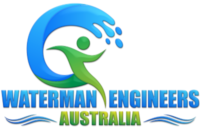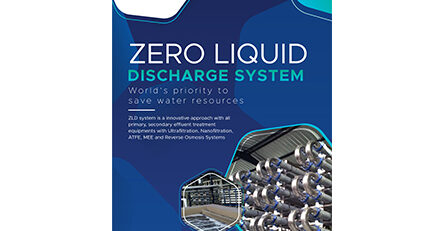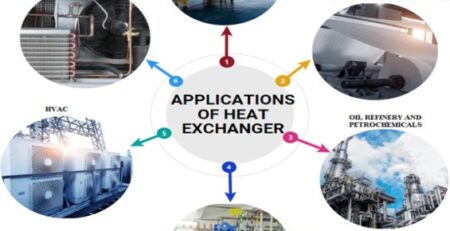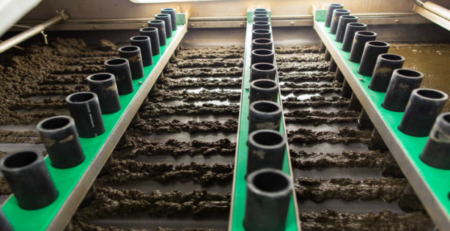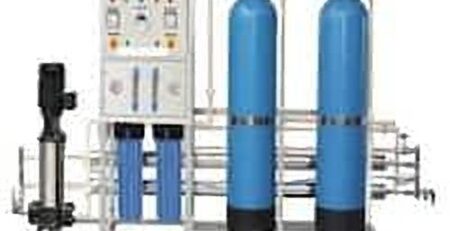Soft Drink Manufacturing Plant
The soft drink industry is highly dynamic and competitive, with changing consumer demand and innovation. Soft drink manufacturing involves a highly complex process that transforms raw materials into the fizzy and flavorful drinks you find bottled or canned in retail stores. This paper will discuss the separate stages of production, the main technologies used, and the detailed workflow of the manufacturing. This research would focus on the basic elements of production, including raw material input, formulation, and the critical steps of manufacture.
-
Introduction to Soft Drink Manufacturing
Carbonated drinks are commonly known as soft drinks. They are made of water, sweetening agents, flavoring agents, and carbon dioxide. These drinks come in many flavors and types, from colas to fruit-flavored drinks, and even sparkling water. As the consumption of ready-to-drink products has increased, so have modern manufacturing facilities that can produce great quantities of liquid both with high speed and reliability.
-
Raw Materials Used in Soft Drink Manufacturing
The first stage of the process of manufacturing soft drinks involves careful selection and preparation of raw materials. The quality of these ingredients determine the taste, consistency, and shelf life of the final product. The following section identifies the key raw materials used in the manufacturing of soft drinks:
The key raw materials used in the manufacturing of soft drinks are:
- Water: Water forms the portion in drinking of over 90% of the drink. It has to be of the highest purity and, therefore, is filtered, treated, and purified by such advanced means as reverse osmosis, ultrafiltration, or distillation.
- Sweeteners: Sugar is the conventional sweetener used in soft drinks, but high-fructose corn syrup, stevia, and other artificial sweeteners, including some sweeteners in aspartame and sucralose products, also enjoy wide use; these sweeteners provide a characteristic sweet flavor.
- Flavorings: Natural or artificial flavoring agents are added to give a special taste to the beverage. This might involve fruit essences, herbal extracts, or artificial flavoring compounds depending on the desired flavor profile and market demand for consumers.
- Carbon Dioxide (CO₂): The effervescence of soft drinks results from carbonation, where carbon dioxide gas is dissolved in a liquid at a high pressure. This, at least, not only adds effervescence but also boosts the sensorial experience of consuming a soft beverage.

- Acids: Acidulants, such as citric acid, phosphoric acid, and malic acid, are used to adjust the pH of drinks. They give a sour and tangy flavor profile. Moreover, they act as preservatives since they inhibit microbial growth.
- Preservatives and Additives: Among these are preservatives like sodium benzoate and potassium sorbate, used to extend the shelf life and maintain quality. More so, other things like stabilizers, emulsifiers, and colorants are used to ensure uniform appearance and texture for the product.
-
Formulation and Recipe Development
Formulation and recipe development are critical before a soft drink can be produced on a large commercial scale. In the beverage industry, companies seek services from food scientists and flavor chemists to create new products. They team up to come up with different ingredient combinations to achieve the desired flavor profile, sweetness level, and mouthfeel.
Companies test for different levels of sugar concentration, flavor add, carbonation, and acidulants at this development stage. They aim for optimal balance between flavor and texture but also for other aspects, such as cost, stability, and product life span.
Soft drinks have been highly tested in their sensory characteristics that include flavor, aroma, and appearance. Formulations are developed for the purpose of testing through consumer testing before a final formula can be identified.
-
The Manufacturing Process
Operations in modern new plants are highly automated for soft drinks, meaning that consistency, efficiency, and hygiene will not be compromised. In fact, there are several stages in the whole process:
- Water Treatment:
Water for soda has to be the purest to allow quality in the product. Most manufacturing plants filter water through various stages of purification for the removal of impurities, chemicals, and microbes. Common methods include:- Filtration
- Reverse Osmosis
- UV Treatment
- De-chlorination
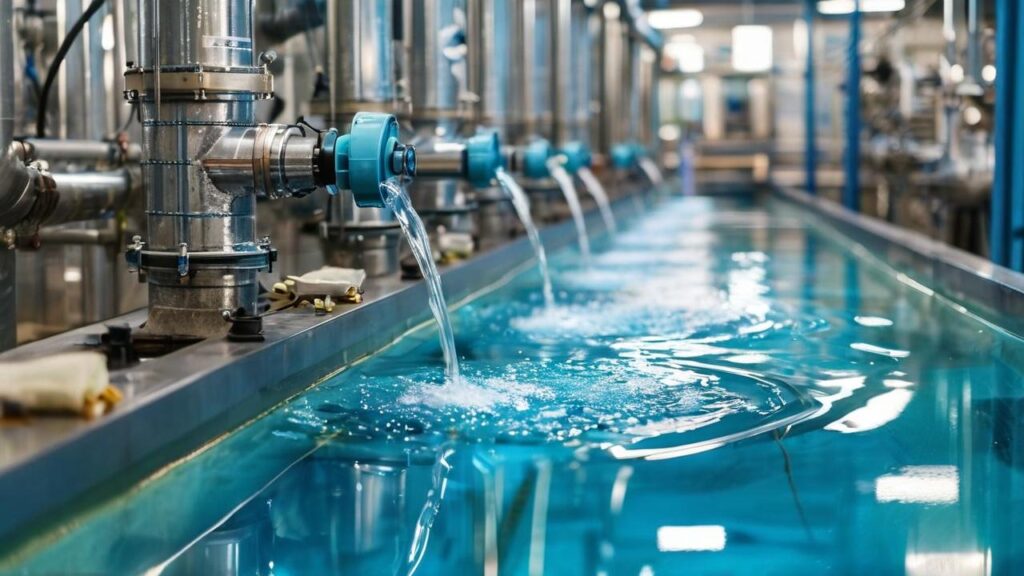
- Mixing and Blending:After water treatment, raw materials then have to be mixed together to produce the soft drink syrup. These syrups usually comprise water, sweeteners, flavorings, and acids. The amounts are measured and added into large vessels called “blending tanks.”The parameters of temperature and pH are carefully controlled to enable proper agitation of the tanks, which are usually equipped with agitators. This ensures that the mix is uniformly distributed and the final product will have consistency.In fruit-flavoured soft drinks production, concentrated fruit juices or syrups are mixed with water and other constituents to achieve the desired taste profile. Formulation has to be followed to the letter to meet the specified brand’s taste and quality specifications.
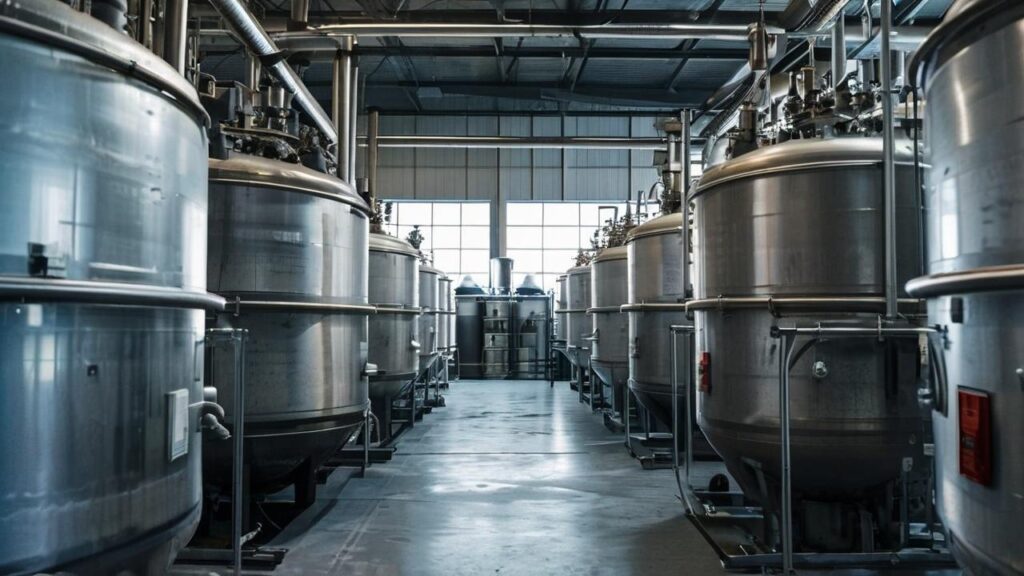
- Carbonation:The carbonation process is an essential step in the manufacture of soft drinks. The liquid is charged with CO₂ gas, using a process that requires high pressure to keep the gas soluble until the bottle is opened, and then the gas escapes, producing the fizz associated with the carbonated beverage.The amount of CO₂ added depends on the type of soda drink being prepared. For example, colas tend to be more carbonated than fruit-flavored soft drinks. The carbonation process takes place in a device called a carbonator, where the soft drink is chilled to enhance the dissolving ability of CO₂.
- Filling and Packaging:On carbonation of the soda, it is ready for the bottling or canning process. It is a process that must be done fast and efficiently to avoid its loss in the carbonated soda. Modern filling lines have the capability of filling a few hundred bottles or cans per minute.It is filled into sanitized bottles or cans under pressure to prevent the escape of CO₂. After filling, it is sealed in containers using caps or lids, which secure that the carbonation remains in the beverage up until the time of consumption.The final stage of the production process involves packaging and labelling products that are ready for shipment. This includes shrink-wrapping bottles, organizing cans into cartons, or preparing pallets for shipment.
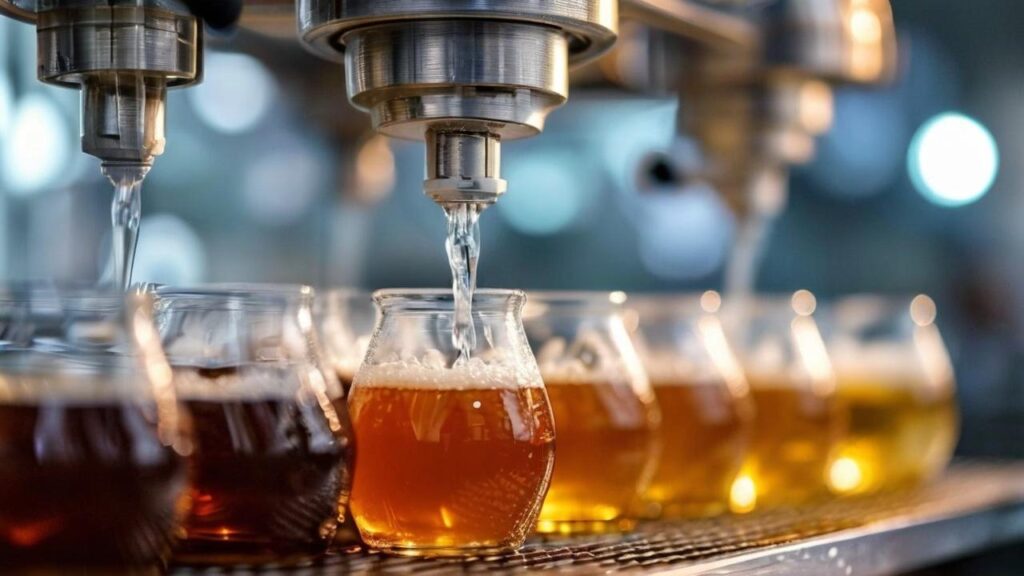
- Water Treatment:
-
Quality Control
Strict quality control procedures during the manufacturing process ensure each batch of soft drink meets the set standards, including the quality of the water, the proportion of the ingredients, the level of carbonation, etc., and check the taste, color, and consistency of the finished product.
Tests are conducted in a laboratory to evaluate microbial contamination, pH level, Brix levels, and carbonation levels. Whenever contamination above the threshold limits is detected, corrective measures are taken in the form of revising the formulation or manufacturing process.
-
Regulatory Compliance and Safety Standards
Strict regulatory standards must be strictly adhered to in the operation of a soft drink manufacturing facility. Such regulations are put in place to ensure that the manufactured products are safe for consumption by consumers, properly labeled, and conform to domestic as well as global requirements. Several agencies control the soft drink sector, and observing regulations by such agencies is mandatory.
- Food Safety Regulations:Producers of soft drinks have to adhere to all guidelines that come from such bodies such as the FDA in the United States and EFSA in Europe. Some of the guidelines include aspects as far as water and raw materials used as well as sanitary conditions of the manufacturing plants.In order to comply, manufacturers must make use of Hazard Analysis and Critical Control Points (HACCP) protocols in all their production to identify potential risks of contamination and set strategies for mitigation. Unannounced inspections are carried out by government agencies and third-party auditors to ensure high standards of food safety.
- Labeling and Ingredient Disclosure:Proper labeling of soft drinks is another aspect of meeting the necessary statutory standards. There must be an accurate depiction of ingredients, nutritional content, calorie count, and preservatives or additives that may be added to the product. This is especially important for health-conscious consumers who are keenly interested in monitoring levels of sugar, caffeine, and artificial substances consumed.
 Wrong or not sufficient labelling can bring out legal issues, fines, or even the withdrawal of the product itself, all which negatively affect the reputation of a brand. Organisations work closely with legal and regulatory experts to ensure their packs comply completely with relevant regulations.
Wrong or not sufficient labelling can bring out legal issues, fines, or even the withdrawal of the product itself, all which negatively affect the reputation of a brand. Organisations work closely with legal and regulatory experts to ensure their packs comply completely with relevant regulations. - Beverage-Specific Regulations: In specific markets, the production of soft drinks is governed by supplementary regulations that establish permissible concentrations of various components, including caffeine, synthetic sweeteners, and coloring additives. Furthermore, beverage producers are required to take into account regulations pertaining to environmental sustainability, encompassing aspects such as water consumption, waste management, and carbon output.
-
Sustainability in Soft Drink Manufacturing
The center of focus in the soft drink industry currently is sustainability, mainly because of the increasing demand for environmentally friendly products from consumers. Companies are, therefore, making efforts to decrease their ecological footprint through the adoption of sustainable practices at all levels of production, sourcing, packaging, and distribution.
- Water Conservation and Recycling:
Water represents the crucial component in the production of soft drinks; however, it is also a resource that requires sustainable management. Numerous facilities have established water conservation initiatives aimed at reducing waste, which encompass technologies for water recycling and reuse.Closed-loop systems, for instance, enable plants to recover water used in any cleaning or cooling process and enable purification for reuse. Overall, this reduces the consumption of water and the overall negative environmental impact of production. - Energy Efficiency:
Energy consumption is the other significant area that the soft drink manufacturers are innovating to reduce their footprint. Modern plants feature energy-efficient equipment – low-energy mixers and high-efficiency carbonators – which substantially reduce energy use through the manufacturing process. Additionally, such plants utilize solar panels and other forms of renewable energy to power them.Plants have also optimized their processes through reduced transportation emissions due to supply chain efficiency and decreasing the numbers of deliveries and shipments needed to minimize the carbon footprint that moves raw materials and finished products. - Eco-Friendly Packaging:
Packaging of soft drinks is a significant factor in evaluating their environmental impact. The industry has reached significant successes in developing alternative types of packaging that are more sustainable, among them being the use of recycled materials for the bottles, plastic bottle thickness minimization, and promoting biodegradable or plant-based plastics.Companies are also encouraging customers to participate in the recycling process by offering take-back programs and partnering with local recycling plants. Returnable glass bottles and aluminum tin, that are also becoming increasingly popular, leave a much smaller environmental footprint than single use plastic.
- Water Conservation and Recycling:
-
Advancements in Soft Drink Manufacturing Technologies
The advancement of innovation in the production of soft drinks is crucial for sustaining operational efficiency, enhancing the quality of products, and adapting to evolving consumer preferences. Technological innovations are influencing the industry’s trajectory, encompassing automation, digitization, and novel techniques for flavor extraction and carbonation.

- Automation and Industry 4.0:Modern soft drink manufacturing plants often use Industry 4.0 technologies, such as automation, AI, and the Internet of Things, to improve their plant’s efficiency in production. The automated systems can monitor and control several stages of a production cycle, thus ensuring that the operations go on smoothly and effectively.Other machines, including automated fillers, would be adjustable according to the type of beverage, and AI-based quality inspection systems could catch deviations in product and packaging quality at an instant. The sensors made possible by the Internet of Things give real-time information on the operation of machineries, allowing for predictive maintenance and reducing the chances of breakage or time-wasting downtime.
- New Carbonation Techniques:Conventional carbonation entails the infusion of carbon dioxide gas into a liquid while under pressure; however, innovative carbonation techniques are currently being developed to enhance efficiency and elevate the sensory attributes of soft beverages. One such method, micro-carbonation, facilitates a more exact regulation of bubble size and distribution, resulting in a smoother and more sophisticated mouthfeel.
Furthermore, innovations in carbonation technologies have made it easier to produce low-carbonated or even carbonation-free beverages, an option that attracts consumers seeking healthier and less effervescent alternatives. - Natural Flavor Extraction:As the demand for natural and clean-label products continues to rise, beverage producers are increasingly adopting sophisticated flavor extraction methodologies to generate premium, natural flavorings. Techniques such as supercritical CO₂ extraction enable manufacturers to isolate flavors from fruits, herbs, and botanicals while eliminating the necessity for chemical solvents.These innovations facilitate the creation of drinks characterized by robust and genuine flavors, simultaneously eschewing synthetic additives, a practice that resonates with the inclinations of health-aware consumers.
Waterman Engineers Australia Services
Waterman Engineers Australia is one of the giants in innovative engineering solutions, mainly focusing on designing and manufacturing customized facilities for various industries like the beverage industry. The company focuses on developing higher quality, productive, and sustainable systems, offering a wide selection of services designed to cater to the specific needs of soft drink manufacturing.
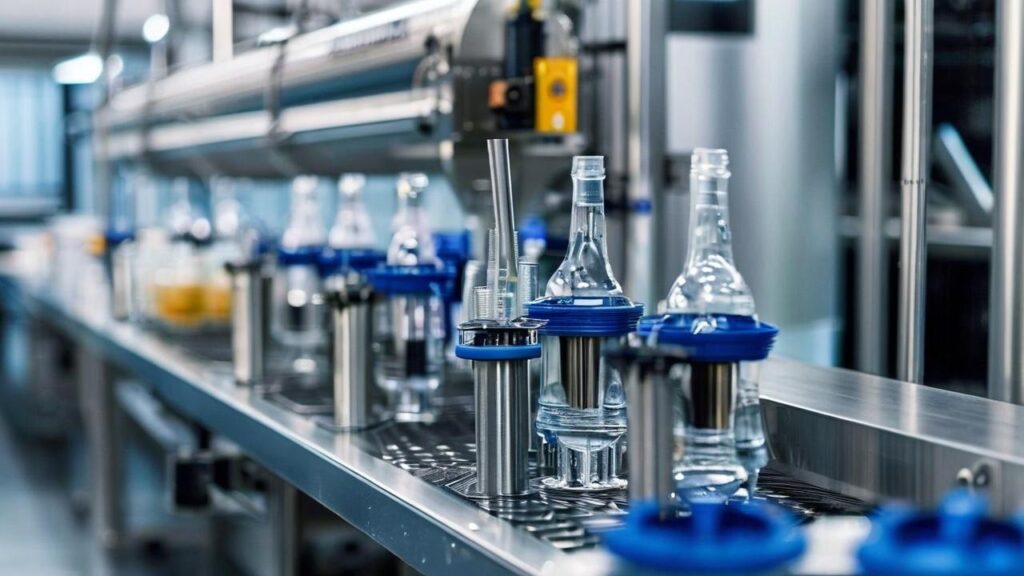
-
Custom Soft Drink Manufacturing Plant Design
Waterman Engineers Australia designs specific plant arrangements which cater to the needs of beverage manufacturers in soft drinks. The company accommodates the solutions of either an operationally larger facility or smaller, specialized operations that are designed to improve efficiency and increase throughput. They have facilities engineered to process all categories of beverages: carbonated soft drinks, flavored waters, and functional beverages.
-
Water Treatment Solutions
A major service provided by Waterman Engineers Australia is the delivery of advanced water treatment systems. Since water forms the most crucial ingredient in soft drinks, its quality needs to be ensured in order to preserve product integrity. The company offers advanced water purification technologies, including:
- Reverse Osmosis (RO) Systems
- Ultrafiltration (UF)
- Deionization and Demineralization Systems
-
Mixing and Blending Equipment
To ensure uniform taste and quality of soft drinks, the careful blending and mixing of ingredients are very crucial. Waterman Engineers Australia provides some exceptionally efficient mixing equipment, which enables uniform mixing of water, sweeteners, flavorings, and other additives. Its automated systems offer precise control over proportions of various ingredients whilst ensuring that consistency of quality is built into the final product.
-
Carbonation Technology
Carbonation is one of the most important mechanisms involved in soft drink production, and Waterman Engineers Australia provides specialized carbonation systems that ensure constant CO₂ levels for different beverage categories. The systems allow for very accurate carbonation control, so producers can adjust the level of effervescence to the type of soft drink being made, such as strongly carbonated sodas or slightly sparkling drinks.
-
Filling, Packaging, and Labeling Solutions
Waterman Engineers Australia offers a wide range of filling, packaging, and labeling equipment focused toward the soft drink manufacturing industry. Their filling equipment allows for clean and sanitary filling operations of products into a range of containers including plastic bottles, aluminum cans, and glass bottles. In addition to this, the company provides automated labeling systems with a guarantee to provide accurate and uniform product labeling to help manufacturers achieve compliance requirements and protect brand reputations.
-
Automation and Industry 4.0 Integration
To enhance efficiency in production and limit human error in its soft drink manufacturing units, Waterman Engineers Australia makes use of automation and Industry 4.0 technologies. These technologies help to monitor and control diversified production work like mixing, filling, and packaging of ingredients in real-time. Automated systems help optimize all the operational processes without wastes and with quality that can be achieved uniformly in all production cycles.
-
Sustainability Initiatives
Sustainably maintained services are at the core of Waterman Engineers Australia, ranging from soft-drink-producing plants with an eco-friendly solution designed to minimize environmental impact. Sustainability initiatives include:
- Water Recycling and Reuse Systems
- Energy-Efficient Equipment
- Eco-Friendly Packaging Solutions
-
Quality Control and Compliance
Waterman Engineers Australia ensures that the manufacturing plants of soft drinks they design fully comply with all food safety regulations in the region and internationally. The engineering systems that they design are also on HACCP criteria, thereby offering the best food safety possible during production. They also provide automated quality control systems which monitor product uniformity, detect faults, and ensure compliance with labeling requirements and ingredient declarations.
-
Turnkey Solutions
For clients in pursuit of comprehensive services, Waterman Engineers Australia delivers integrated turnkey solutions. Spanning the entire process from the preliminary design and installation of plants to their commissioning and subsequent maintenance, the firm offers a complete range of services that facilitate the efficient functioning of soft drink manufacturing operations. The company’s team of specialists collaborates intimately with clients to comprehend their requirements and furnish tailored solutions that enhance production efficiency, product quality, and sustainability.
Waterman Engineers Australia is a trusted provider of comprehensive engineering solutions oriented toward soft drink manufacturing plants. Their water treatment, automation, energy efficiency, and sustainability skills make them able to set up very high-class systems which satisfy the complex needs of the beverage industry. Whether it’s advanced water treatment systems, precise carbonation technologies, or eco-friendly packaging, Waterman Engineers Australia has the whole gamut of solutions to make the soft drink production process efficient, regulation-compliant, and sustainable.
FAQs and Answers
- What services does Waterman Engineers Australia offer for soft drink manufacturing plants?
Waterman Engineers Australia offers many solutions designed to meet specific needs of beverage bottling plants, including standard plant layout design, water treatment facilities, mixing, and blending plant, carbonation facility, as well as automated filling and packaging lines together with sustainability initiatives. Besides, it provides turnkey solutions that ensure efficient, compliant, and sustainable overall production process. - What type of water treatment systems does Waterman Engineers Australia offer for soft drink production?
Companies provide state-of-the-art water-treatment technologies, which include Reverse Osmosis (RO), Ultrafiltration (UF), deionization, and demineralization systems. Such methods ensure high-quality water is produced for the production of soft drinks. Their systems remove contaminants, microorganisms, and minerals effectively to meet strict quality parameters. - How does Waterman Engineers Australia support sustainability in soft drink production?
Waterman Engineers Australia undertakes several activities aimed at sustainability, such as water recycling and reuse systems, energy-efficient equipment, and environmentally responsive packaging solutions. The ultimate aim is to cut down on water usage, reduce energy consumption, and encourage recyclable or biodegradable packaging products as a way of minimizing environmental degradation. - What types of beverages can be produced using Waterman Engineers Australia’s soft drink manufacturing plants?
Their manufacturing plants are versatile and can produce a wide range of products, such as carbonated soft drinks, flavored waters, functional drinks containing added vitamins or minerals, and sugar-free or reduced-sugar options. Manufacturers can produce a variety of the drinks they want through their flexible systems. - What are the automation and Industry 4.0 technologies used by Waterman Engineers Australia in soft drink plants?
They incorporate in their plants technologies that characterize Industry 4.0 automation, Artificial Intelligence, and Internet of Things. All this allows for immediate control of production processes, planned maintenance, and controlled production in which efficiency is increased, and time losses are reduced, plus products are guaranteed to be identical. - How does Waterman Engineers Australia help with soft drink packaging?
Such systems for filling, packaging, and labelling used by Waterman Engineers Australia can accommodate different packaging formats. Their automated solutions make for hygienic and efficient bottling processes along with very precise and compliant labelling which will be of great utility for helping manufacturers fulfill any kind of production requirement and regulatory standards. - Can Waterman Engineers Australia assist in setting up a small-scale or craft beverage production plant?
Waterman Engineers Australia delivers flexible solutions for high and low-production breweries. Their equipment is tailored to the needs of craft beverage manufacturers who desire high-quality equipment for the production of artisanal beverages, allowing them to experiment with various flavor profiles, ingredient combinations, and batch sizes. - What makes Waterman Engineers Australia’s solutions stand out in the soft drink manufacturing industry?
Such comprehensive service provisioning, the use of cutting-edge technologies, commitment to sustainability, and regulatory expertise stand Waterman Engineers Australia as a gold standard for soft drink manufacturers. It provides end-to-end solutions tailored to each customer’s specific needs, optimizing production efficiency while reducing environmental impact and ensuring compliance with relevant food safety regulations.
